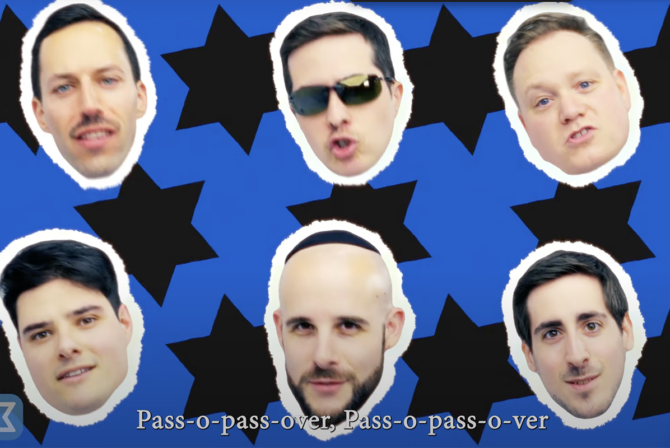Have you ever been bullied on the Internet? Thanks to a discussion about the horrible murders in Toulouse, I have.
I’m a journalist and writer, and my work often attracts comments online. Those comments are not always nice and fuzzy. But Facebook feels somehow more intimate, though, than comments after an article. I’d always thought that “friending” someone meant a sort of tacit agreement to have discourse in a way that could be acrimonious, but would always be mutually respectful. After all, according to
Pirkei Avot
(Ethics of our Fathers)–“Your friend’s dignity should be as precious to you as your own.”
I was very, very wrong.
On Monday, a Facebook friend posted a status message saying that the rabbi and his family in Toulouse were murdered in a “Mohammedan attack.” Seeing as how there was no source as to the religion of the killer–and no proof of who the killer was at that point–I asked him for his source. I pointed out that, “You have no idea what religion the murderer was, any more than the police do. Feel free to post rants when you actually have facts to back you up; until then, feel free to say that you are simply making stuff up.” My objection was clear: I did not feel that leaping to the conclusion that the killer was Muslim, and doing so in a derogatory way, was responsible, particularly from someone who presents himself as an observant Jew.
Clearly, he objected to the tone of my remarks, but his response came in the form of a full-scale, no-holds-barred personal attack. After calling me a “Jewish liberal University of Pennsylvania law grad,” he responded to me pointing out that no one knew the religion of the shooter with, “Get out of here, you stupid bitch.”
He proceeded to tell everyone on his page (over 2,000 people) who my employer was, and went on to post a link to my marriage announcement, saying he couldn’t “imagine why the bride’s first marriage didn’t work out!”
But he wasn’t done. He then went on to attack my Jewish observance, saying, “Guaranteed that jordana horn gordon does not observe the sabbath or keep kosher! That’s why she pours her energy into, e.g., being outraged someone would think a mohammedan did it.”
Were we done yet? No, apparently not. “For the record, if a woman is married, she is not “shomer negiyah” [someone who refrains from physical contact with members of the opposite sex]. I can certainly understand, however, why jordana’s husband(s) would want to be.”
Okay, so let’s recap. At this point, I’ve been called a “stupid bitch.” I’ve had my employer dragged into it. I’ve been attacked as being not sexually appealing, and not sufficiently or adequately Jewish.
And then, when a mutual acquaintance attempted to call him out for his behavior, by telling him she was embarrassed for him and that he was acting inappropriately, he dragged her through the mud, too. He told all his Facebook friends who her employer was, and told her to get off her “high horse.”
Now, you may ask, why am I rehashing all this? It’s because I believe as a Jew, and as a parent, that we are obligated to treat one another, even when we disagree, with respect rather than contempt. Internet tone is often unwittingly mistaken for something it’s not, but I feel that there is little to no ambiguity in what happened here. I believe that this kind of bullying, this kind of sinat chinam–causeless hatred–tears the Jewish people apart. I believe that there is room in the Jewish people for discussions among those who disagree that can be held with mutual respect–and that we should give one another the benefit of the doubt, rather than the backs of our hands.
Do I hold people who hold themselves out as Jews to a higher standard of ethical behavior? Rightly or wrongly, yes, I do. And I believe we should expect that of ourselves. This is the flip side of the point I made in my original piece on Toulouse: all Israel is responsible for one another. We are responsible for helping those who are in need–and, at the same time, we are responsible for calling out behavior that is reprehensible and does not reflect who we are as the people of the Torah and of the Jewish faith.
As a mother, I would be appalled if my children ever treated anyone this way. I would be so ashamed if my child ever called a woman a “stupid bitch” on the Internet. I would be disgusted. And I would feel that I had failed as a parent, and as a Jew.
Yes, it turns out that the attacker was a Muslim. My objection to my “friend’s” original post was leaping to that conclusion before it had been established, which I thought smacked of bigotry rather than responsible journalism. I am sure he now feels vindicated because he was “right.” I’ll argue that he was far more wrong than he was right, on the level of integrity.
I can assure you that the attacker in France did not see any of his victims as human. He did not respect their individuality, their opinions, their right to live. He held them in contempt. He saw them as being beneath him. This is what those who murder and those who hate do: they dehumanize their victims.
The way that we differentiate ourselves from terrorists, from murderers, from those who preach hate, is not only by not committing actual murders ourselves. It is by showing ourselves to be the proverbial light unto the nations. We must treat others with respect and with dignity. As parents, this obligation is even greater. We must show our children behavior that should be emulated, not abhorred. We should show our children how to act in a way that makes us proud, not ashamed.
The friend who defended me wrote to me after she was attacked online, telling me that she told her 2.5-year-old son afterwards, “We stand up to bullies.” If we want to be proud of our children, we have to show them how to behave in a Jewish way that makes them, and us, proud of ourselves.







